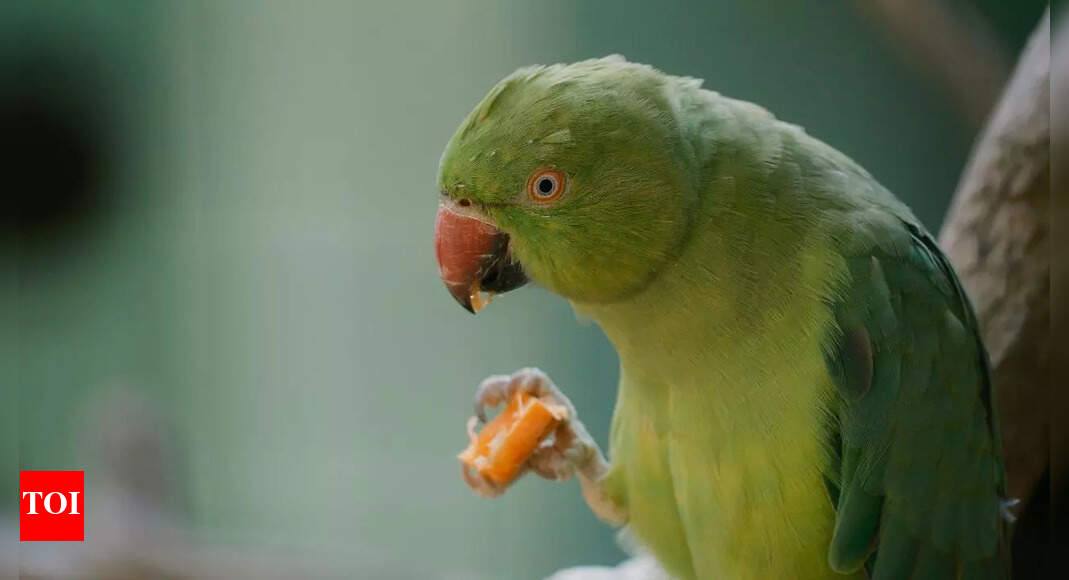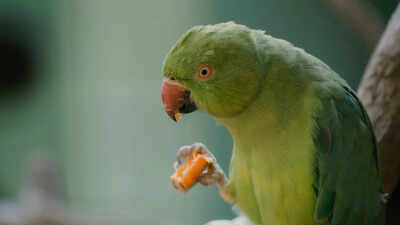
Feeding your parakeet the right foods is essential for its health, longevity, and happiness. While many fruits, vegetables, and grains are safe and nutritious, some everyday foods can be surprisingly toxic to these delicate birds. Even small amounts of certain items, like avocado, chocolate, or caffeine, can lead to severe illness or death. Understanding which foods to avoid is just as important as knowing what to feed. By being cautious and informed, you can protect your feathered friend from hidden dangers and ensure a balanced, bird-safe diet. Here’s a list of common foods that should never be given to parakeets.
8 common foods that can harm your parakeet’s health
Alcohol
Even a tiny amount of alcohol is dangerous for parakeets. Birds have a very small body mass and metabolise substances differently from humans. Alcohol can quickly lead to poisoning, causing disorientation, difficulty breathing, and potentially death. Whether it’s wine, beer, or even food cooked with alcohol, keep it far away from your bird. Always ensure your parakeet’s water and food bowls are clean and free from any traces of alcohol.
Avocado
Avocado contains a compound called persin, which is toxic to birds and many other small animals. When ingested, persin can cause heart failure, breathing difficulties, and death in parakeets. Even a small piece can be harmful. Avoid feeding avocado flesh, skin, or pits, and make sure your bird cannot access any foods or dips made with avocado, such as guacamole.
Caffeine
Caffeinated drinks such as coffee, tea, soda, or energy drinks should never be given to parakeets. Caffeine acts as a stimulant and can cause an increased heart rate, hyperactivity, tremors, or even cardiac arrest in birds. Since parakeets are tiny, even a few drops can lead to serious health complications. Offer clean, fresh water instead to keep your bird hydrated.
Dairy products
While a small amount of milk may not harm some animals, parakeets cannot digest lactose. Birds lack the enzymes needed to break down dairy products, which can lead to digestive upset, diarrhoea, and dehydration. Avoid feeding milk, cheese, yoghurt, or butter. Instead, provide calcium-rich alternatives like cuttlebone or mineral blocks designed specifically for birds.
Onion
Onions, along with related foods such as garlic, leeks, and chives, are harmful to parakeets. They contain sulphur compounds that can damage red blood cells and lead to a serious condition called haemolytic anaemia. Symptoms of onion toxicity may include weakness, vomiting, and breathing problems. It’s best to keep all onion-based foods, whether raw, cooked, or powdered, away from your bird.
Meat
Parakeets are primarily granivores, meaning their diet is based on seeds, grains, fruits, and vegetables. Feeding them meat is unnecessary and potentially harmful. Meat can introduce bacteria such as salmonella, which can cause severe illness. Additionally, processed meats often contain salt and preservatives that are toxic to birds. Stick to plant-based protein sources like cooked beans and lentils for added nutrition.
Mushrooms
Mushrooms, especially raw or wild varieties, contain toxins that can affect a bird’s liver and digestive system. Even common store-bought mushrooms may cause stomach upset, vomiting, or diarrhoea. Since it’s difficult to know which types are safe, it’s best to eliminate mushrooms entirely from your parakeet’s diet. Offer cooked vegetables like carrots, spinach, or peas instead.
Chocolate
Chocolate is one of the most well-known toxins for birds. It contains theobromine and caffeine, both of which can cause vomiting, seizures, heart irregularities, and death. Dark chocolate and cocoa powder are particularly dangerous. Never give your parakeet chocolate-based treats or allow them near foods that contain it. If your bird accidentally consumes chocolate, contact a vet immediately.
Safe feeding tips for parakeet owners
Providing a safe and balanced diet is the best way to keep your parakeet healthy and happy. Offer a mix of high-quality pellets, fresh vegetables, and occasional fruits. Avoid relying solely on seed mixes, which lack essential nutrients and can lead to obesity. Wash all fruits and vegetables thoroughly to remove pesticides before serving.You can also make mealtime fun by scattering small portions of food across their cage or hiding treats in foraging toys. Remember, moderation and variety are key, and always research new foods before offering them to your bird. By steering clear of these eight toxic foods and focusing on wholesome, bird-safe options, you can help your parakeet live a long, vibrant, and chirpy life.Also Read: 8 foods that are dangerous for cows and what they should eat instead








